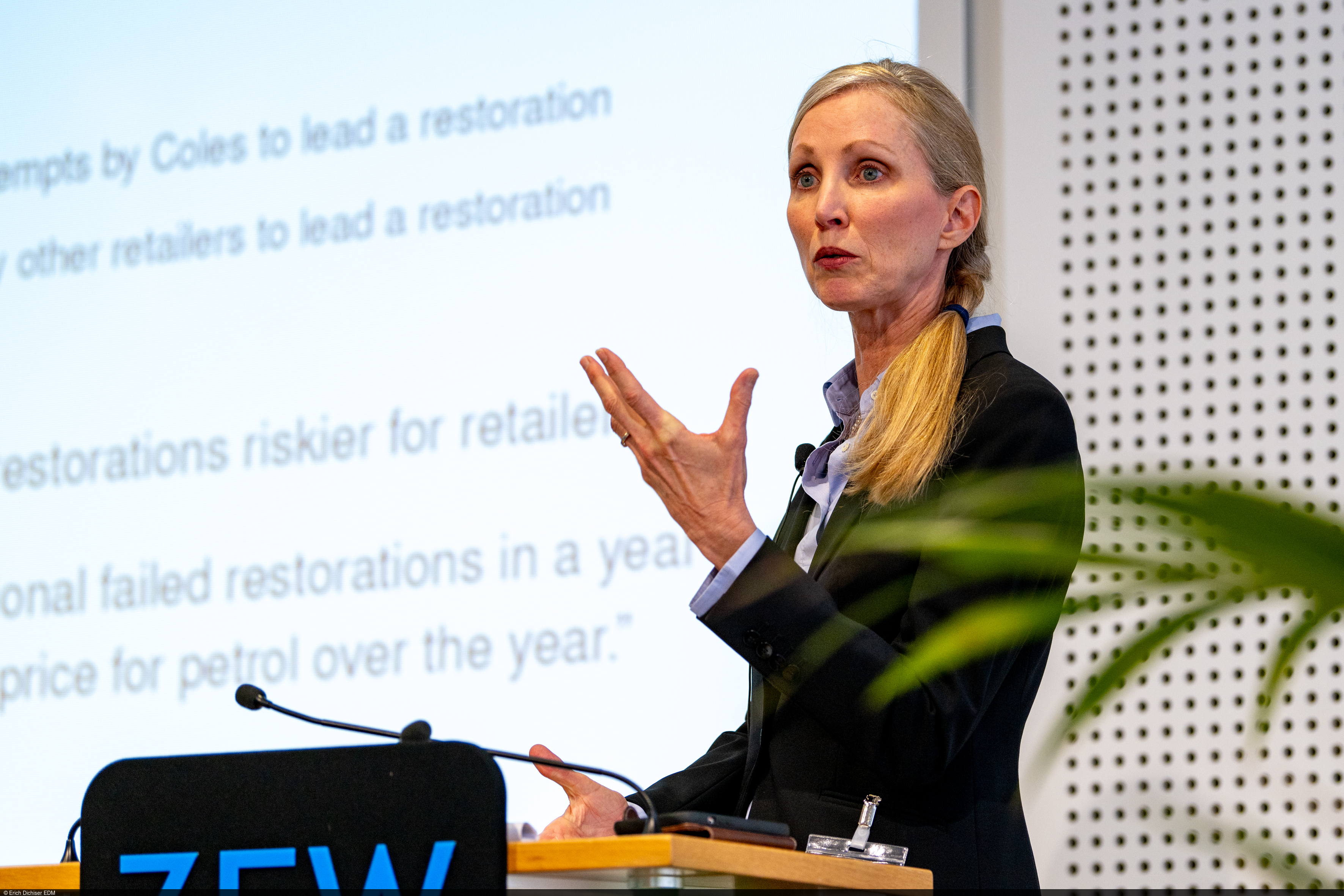Abuse of Dominance, Collusion, and Mergers
ConferencesMaCCI Annual Conference 2024
The Mannheim Centre for Competition and Innovation (MaCCI) hosted its thirteenth Annual Conference on 14–15 March 2024 at ZEW Mannheim with around 120 participants. This year’s conference program contained two keynote speeches, four invited sessions, and around 70 presentations in contributed sessions.
The first conference day included a large number of parallel sessions on topics related to the regulation of digital platforms, market power, and competition. Noteworthy are the sessions containing contributions from law and economics as well as the overall variety of methods presented, both theoretical and empirical. The first day prominently featured an invited session organized by the European Commission’s Directorate-General for Competition on competition policy.
A Critical Inquiry into “Abuse” in EU Competition Law
Professor Pinar Akman from the University of Leeds gave the keynote speech on the first day. She addressed the complex issue of defining abuse of a dominant position in EU competition law. In recent years, regulation brought forth the importance of addressing exclusionary abuse, especially in the context of digital markets and gatekeepers. Yet, what exactly constitutes abuse is far from clear. Professor Akman analyses the evolution of the jurisprudence on abuse in EU competition law, highlighting its shortcomings and ambiguities. The keynote lecture draws a clear picture of the challenges of this area of competition law, ranging from the definitions of exclusionary and exploitative abuse to the variety of tests for abusive conduct, from the somewhat lost distinction between ‘as efficient competitor test’ and ‘as efficient competitor standard’ to the promotion of ex-ante regulation aimed at Big Tech and the digital gatekeepers. Professor Akman argues that the jurisprudence evolved to take a less formalistic and more economic approach. At the same time, the Commission seems to have distanced itself from it in favour of a more „holistic“ approach.
The second day of the conference comprised a variety of topics, ranging from platform design, over energy, and transportation economics to the economics of innovation. It featured a special session on mergers provided by the Bundeskartellamt, in which the chief economist and one of his deputies presented two recent merger cases. Two invited sessions provided new and timely insights into the economics of acqui-hiring and patenting. The highlight of the second conference day was the keynote lecture by Professor Leslie Marx from Duke University.
Price Coordination with Asymmetric Information Sharing
Professor Leslie Marx from Duke University gave the keynote speech on the second day. Drawing from her recent research, Professor Marx shed light on the relationship between asymmetric information sharing and oligopoly pricing. The conventional wisdom that competition weakens when firms share price information relies on the assumption that the firms’ ability to share information is symmetric. The structure of information exchange among oligopolists, Professor Marx argued, directly influences the extent of market power exerted by the firms. To illustrate these findings, she develops a new economic theory and confirms its findings in an empirical investigation of a prominent retail gasoline antitrust case in Australia. The research by Professor Marx and her co-authors addresses a mostly overlooked area in economics, both in prior studies and regulatory frameworks. Their work provides a cautionary tale for antitrust agencies, highlighting the complexities involved in creating safe harbours for information.
About MaCCI
MaCCI – short for “Mannheim Centre for Competition and Innovation” – is a research alliance between ZEW and the School of Law and Economics at the University of Mannheim, which encourages the exchange of knowledge between economists and legal experts. In doing so, it promotes new approaches to issues relating to competition, regulation, and innovation policy. Core topics addressed by MaCCI include merger control, vertical restraints on competition, abuse of market power, public and private enforcement of competition law, and regulations in digital markets, telecommunications, and energy markets.





